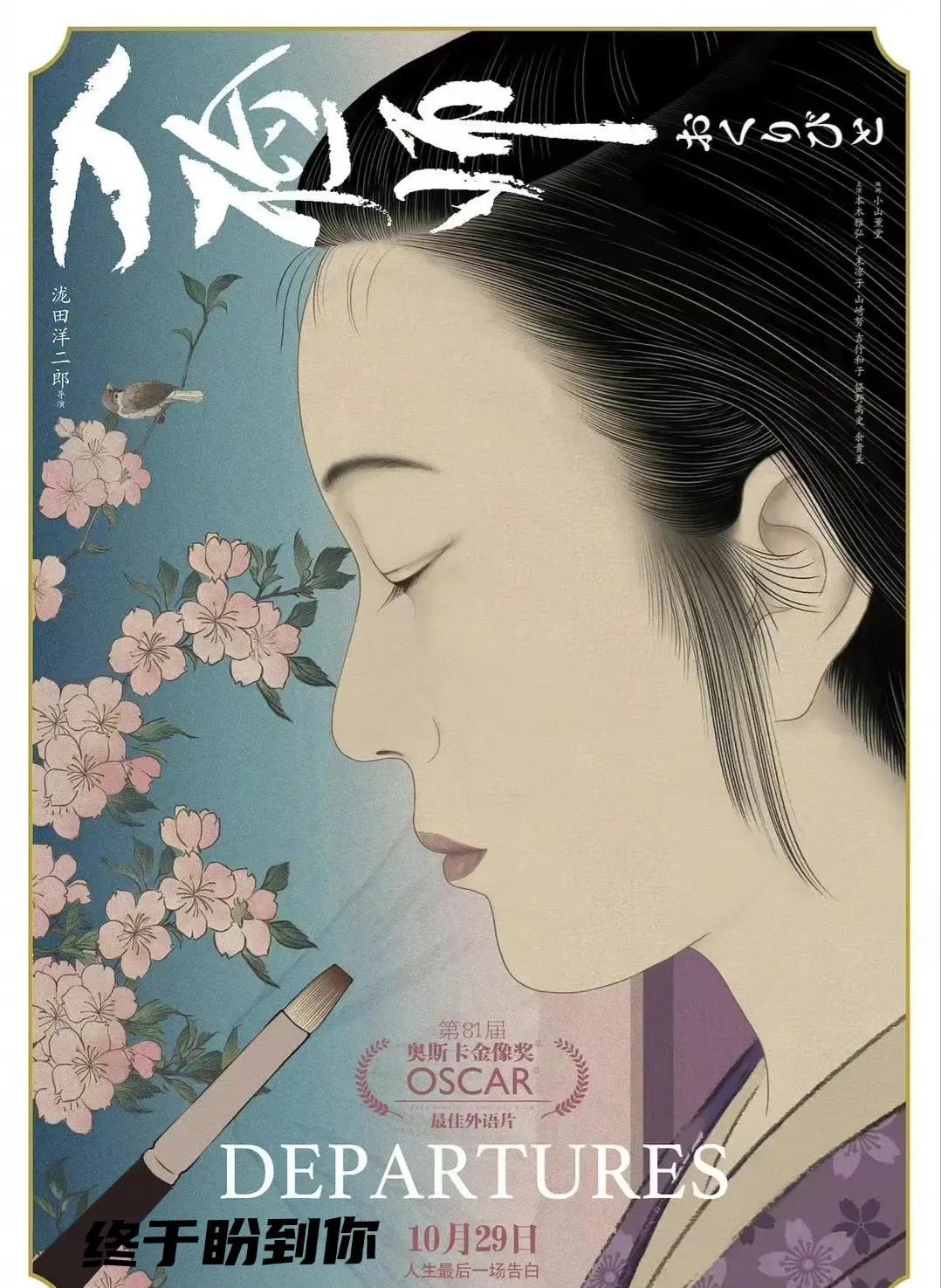
Before doing the funeral culture comparison of the data collection, coupled with the strong temptation of Hisaishi Jean, I know that this movie is a must-see for me.... And the final resonance it brought was something I hadn't expected.
While watching, I remembered the scene of sending off important relatives, and the tears could not be suppressed after all.
Chinese funerals have always had a strong mysterious color in the eyes of Westerners because of their complicated steps and exquisiteness, so it is only natural that "The Mortician" can win the Oscar for best foreign language film.
In Eastern culture, because death and life are opposed, funerals and other topics are actually a taboo, and death has more dark, negative connotations. In the United States, more and more people are buying cemeteries for themselves before they die, and all this is rare in Eastern cultures. After Kobayashi disposes of the corpse for the first time, his groping of his wife's flesh is also to show his fear of the cold feelings of death, and he desperately needs to feel the heat of life to help him escape from those dark emotions.
The mortician is mainly responsible for the part of the funeral process known as the "small funeral", which is simply the final arrangement of the dress for the deceased, and the responsibility of "big funeral". Generally speaking, those of us living in big cities basically don't have the opportunity to see how morticians help the deceased to tidy up their appearance, all we can do is pick out the clothes that the deceased liked before he died, and then hand them over to the funeral home staff.
In the film, the director repeatedly focuses on the funeral master to cross the feet of the body, with Buddha beads to tie the hands, from the Chinese custom, if you do not use the line to tie the hands and feet, the deceased will be on the way back to the hometown, by other wild ghosts, there is another saying that if the deceased is not placed in this way, then the soul of the deceased will come out to disturb the living family, if it is tied and buried, the deceased will bless the family. Of course, whether this move means the same thing in Japanese culture remains to be studied.
As the female clerk played by Yu Kimiko in the film said, no matter how gorgeous the coffin is, the feeling of sleeping in it is actually the same, not to mention that the deceased knows nothing. The funeral is ostensibly a ceremony to bid farewell to the deceased, symbolizing their journey to the next journey. But in fact, all this is more for the living, it gives the living the opportunity to finally fulfill filial piety, express love or atone for sins, and the forms and utensils selected by the living when holding funerals are actually following their own wishes. Just like the first deceased at the beginning of the film, the final choice of which gender to wear makeup is also determined by his parents.
Or, many people will say that such a film is very superficial, but it is just a kind of occupation to repeat the meaning of death, everything is a cliché. But what I admire about the director is that he can shoot such a heavy subject matter more humanistically. Whether the shooting method is clever, whether the bridge section is innovative, sometimes is not the only criterion for measuring the success of the director, how to use a bland plot to repeatedly highlight the relatively profound theme, and can buckle into the delicate emotions, sometimes more skilled.
I personally believe that the greatness of "The Mortician" is that it breaks the eastern culture of "not knowing life, knowing death", and never mentioning the impact of death on people. There are many themes and expression methods about life and death, but in the method of thematic treatment of "The Mortician", the entry point is mainly in the emotional reflection of the living in the face of the separation of their relatives, through which to extend people's view of life and death. At its center, it emphasizes a process of acceptance of "death", so if you emphasize too much on the deep meaning of life and death according to the wishes of some fans, it will feel a little off the original theme. At the very least, in terms of subject matter, this is a breakthrough, everyone will think but did not implement the theme to shoot, Yojiro Shiota chose to put it on the screen in this way, so what qualifications do we have to scorn it?
"The Mortician" once again confirms that Hisaishi Ishi is worthy of being a master of music, using the cello to replace the melody of the requiem, which is handled properly and impressively. The protagonist's playing of the cello on the open field highlights his inner relief of the pressure faced by the mortician, the overcoming of the fear of death, and the calm expression of inner emotions.
Facing death and respecting death, that's how I feel